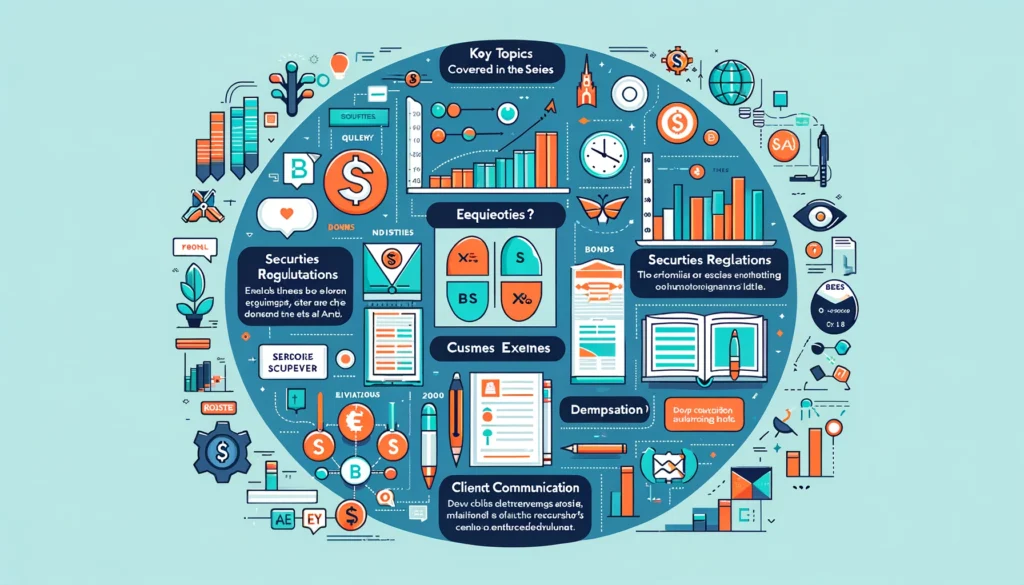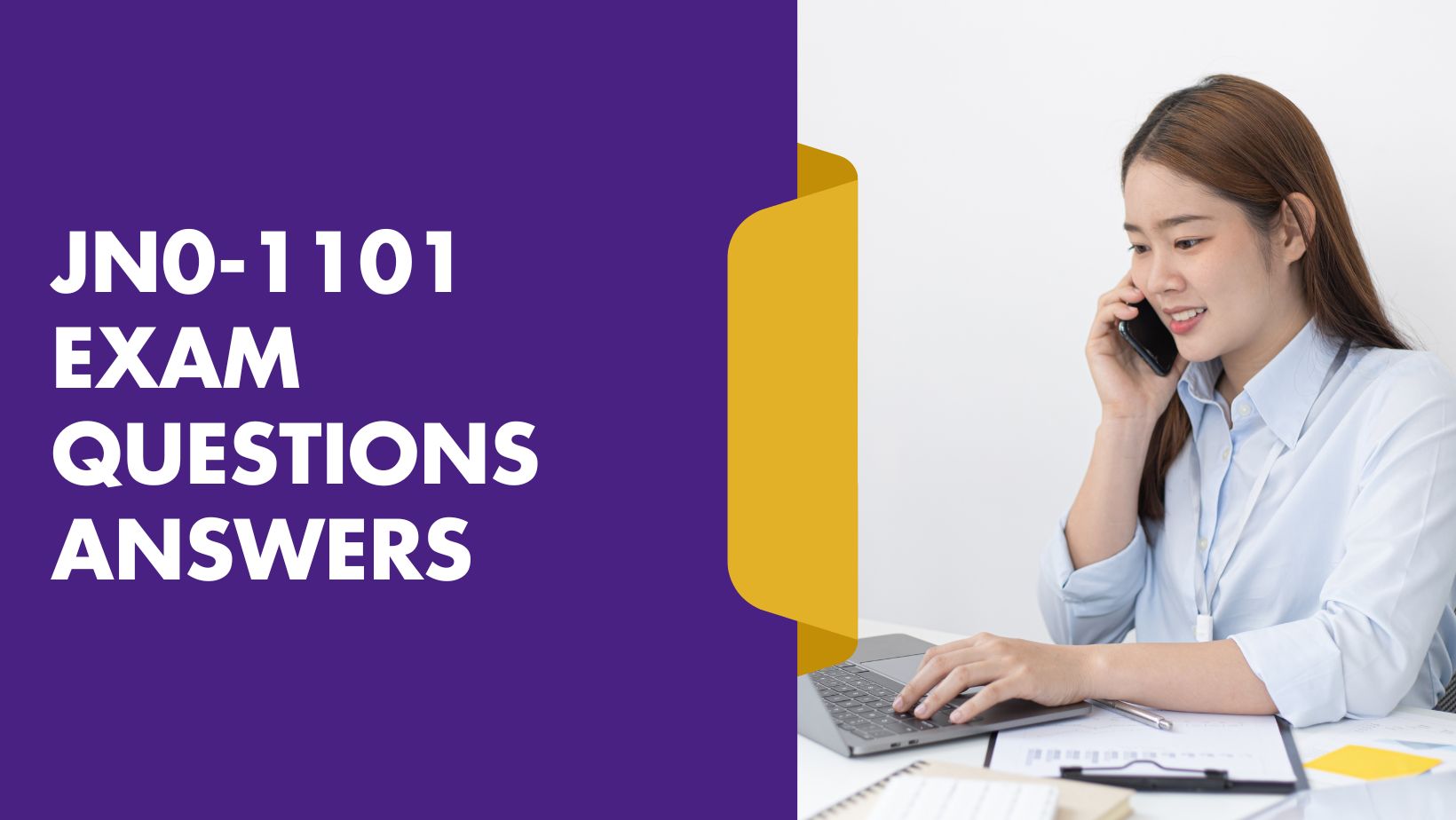Overview of Series 7 Exam Questions
The Series 7 exam, a pivotal stepping stone for those aspiring to carve a niche in the financial advisory and securities industries, is a comprehensive assessment designed to evaluate a candidate’s grasp of investment risks, sales practices, market mechanisms, and regulatory standards.
This rigorous examination comprises a wide array of questions that delve into the minutiae of buying and selling securities, retirement plans, taxation, and equity trades, among other critical financial topics. For those looking to familiarise themselves with the nature and scope of these queries, accessing a Series 7 exam questions PDF can be an invaluable resource.
Table of Contents
It not only offers a glimpse into the types of questions one might encounter but also aids in strategic preparation by highlighting areas requiring further study.
Moreover, practice series 7 exam questions serve as an essential tool for aspirants, enabling them to gauge their readiness and identify weaknesses in their understanding of the material. The breakdown of Series 7 exam questions typically includes a mix of multiple-choice queries that test both general concepts and specific case-based scenarios, ensuring a comprehensive evaluation of the candidate’s knowledge and application skills.
Through diligent study and targeted practice, individuals can enhance their chances of success, moving one step closer to achieving their professional goals in the financial sector.
Key Topics Covered in the Series 7 Exam
The Series 7 exam, a cornerstone for professionals aiming to excel in the securities industry, encompasses a broad spectrum of topics essential for the proficient trading and advising on securities. This exhaustive examination tests candidates on a variety of critical areas, including but not limited to equity and debt instruments, investment risk, taxation, regulations, and ethical practices.
Regulatory Requirements and Guidelines
- Understanding of SEC and FINRA regulations.
- Compliance and reporting requirements.
- Anti-money laundering (AML) protocols.
Equity Securities
- Characteristics and types of stocks.
- Rights, warrants, and dividends.
- Trading and settlement procedures.
Professional Conduct and Ethical Considerations
- Ethical standards and professional responsibilities.
- Handling of confidential customer information.
- Conflict of interest and fiduciary duties.
The depth and breadth of the material ensure that those who pass the exam possess a comprehensive understanding of financial products, as well as the regulatory environment in which they operate.
For individuals embarking on their preparation journey, exploring Series 7 exam questions examples can provide significant insights into the exam’s format and the complexity of questions posed. These examples highlight the practical application of theoretical knowledge, challenging candidates to apply concepts to real-world scenarios.

Moreover, a thorough Series 7 exam questions breakdown reveals the emphasis placed on different topics, guiding candidates on where to focus their study efforts. Engaging with practice series 7 exam questions further solidifies understanding, enabling candidates to approach the exam with confidence and a well-rounded grasp of the key topics covered.
Common Pitfalls in Series 7 Questions
Preparing for the Series 7 exam, aspiring securities professionals often encounter several common pitfalls that can hinder their success. One of the primary challenges lies in underestimating the complexity of the series 7 exam questions.
These questions are meticulously designed to test not only the candidate’s knowledge of financial principles but also their ability to apply this knowledge in practical, often nuanced, scenarios. This can lead to overconfidence in those who focus solely on memorising facts without understanding their application.
Another significant pitfall is the lack of exposure to a wide variety of question formats. Relying solely on a single source or limited series 7 exam questions pdf can result in a narrow understanding of the exam’s scope. Diverse practice series 7 exam questions are crucial for familiarising oneself with the exam’s breadth, including its multiple-choice format that often includes complex scenario-based questions.
Furthermore, candidates may overlook the importance of time management, a skill essential for navigating the extensive series of questions within a limited timeframe effectively. By recognising and addressing these common pitfalls, candidates can enhance their preparation strategies, significantly improving their chances of achieving a passing score.
Feedback and Performance Improvement
Feedback and performance improvement are integral components of preparing for the Series 7 exam, a challenging milestone for those aspiring to excel in the securities industry. After engaging with practice series 7 exam questions, the feedback received on one’s performance is crucial for identifying areas of strength and weakness.
This feedback, whether from self-assessment tools, study groups, or professional tutors, provides invaluable insights into how well a candidate understands the material and where further review or a different approach may be necessary.
Performance improvement following feedback involves a strategic and focused effort to address identified weaknesses. For instance, if a candidate consistently struggles with questions related to debt instruments, dedicating additional study time to this area, seeking out series 7 exam questions examples on this topic, or engaging in discussions with peers or mentors can be effective strategies.
Moreover, revisiting the series 7 exam questions breakdown can help ensure a balanced understanding across all areas covered by the exam. Through a cycle of practice, feedback, and targeted improvement efforts, candidates can significantly enhance their knowledge and test-taking skills, positioning themselves for success in the Series 7 exam.
After the Series 7 Exam: Next Steps
Upon completing the Series 7 exam, a significant milestone for many in the financial services industry, candidates often find themselves at a crossroads, contemplating their next steps.
Success in the exam, which is evidenced by a thorough understanding of series 7 exam questions, opens up a plethora of opportunities in securities trading, investment advising, and beyond. Candidates are encouraged to leverage the momentum gained from their exam preparation and success to further their careers.

One immediate step is to consider additional certifications or licenses that complement the Series 7 qualification, such as the Series 63 or Series 65 exams, which cover securities regulations and ethics. Engaging in continuous professional development through workshops, seminars, and industry conferences can also enhance one’s knowledge and network within the financial sector.
Congratulations on completing the Series 7 exam, a significant milestone in your career as a financial professional. This rigorous exam tests your knowledge and understanding of securities trading, regulations, and ethical practices, serving as a crucial step in becoming a licensed general securities representative. But what comes after you’ve navigated this challenging hurdle? Let’s explore the next steps in your career journey and how you can leverage your new qualification to advance and thrive in the financial industry.
Celebrate Your Achievement
First and foremost, take a moment to celebrate your success. Passing the Series 7 exam is a testament to your hard work, dedication, and expertise in the securities industry. Acknowledge your effort and consider celebrating this achievement with friends, family, or colleagues who supported you through your preparation journey.
Understand Your Exam Results
Upon completing the Series 7 exam, you will receive your results immediately. A passing score is a significant accomplishment and paves the way for your career in securities. If you did not pass, it’s important to review your score report to understand areas needing improvement. FINRA provides detailed feedback on your performance, which can be invaluable for your next attempt.
Completing Registration with FINRA
Passing the Series 7 exam is a crucial step, but it’s not the only requirement for becoming a registered representative. You must also be associated with and sponsored by a FINRA member firm. This firm will file a Uniform Application for Securities Industry Registration or Transfer (Form U4) on your behalf, which initiates your registration process with FINRA.
Continuing Education and Compliance
With your Series 7 license in hand, your learning journey is far from over. The financial industry is dynamic, with regulations and products constantly evolving. FINRA requires that registered representatives complete a Regulatory Element Continuing Education (CE) program every three years to stay informed of regulatory changes and industry developments. Additionally, your sponsoring firm will likely have specific ongoing training requirements to ensure you remain compliant with both regulatory standards and company policies.
Exploring Further Certifications
The Series 7 license opens numerous doors in the securities industry, but further certifications can expand your career opportunities even more. Depending on your interests and career goals, consider pursuing additional qualifications such as:
- Series 63 (Uniform Securities Agent State Law Examination): Often required for those looking to trade securities at the state level.
- Series 65 (Uniform Investment Adviser Law Exam) or Series 66 (Uniform Combined State Law Exam): Essential for those aiming to offer investment advice.
- Certified Financial Planner (CFP): For professionals focusing on comprehensive financial planning.
Building Your Network and Career
With your certification in hand, it’s time to focus on building your career. Networking with other professionals in the industry can provide valuable insights and opportunities. Attend industry conferences, join professional organizations, and consider finding a mentor who can guide you as you navigate your career path.
Additionally, stay informed about industry trends and developments. Reading financial news, subscribing to industry publications, and participating in online forums can keep you abreast of new products, regulatory changes, and innovative practices in securities trading.
For those looking to apply their skills in a new role, updating one’s CV to highlight the Series 7 qualification and actively seeking positions that require this certification can be fruitful. Furthermore, sharing one’s journey and insights on preparing for the exam, perhaps by creating a series 7 exam questions pdf or guide for future candidates, can not only aid others but also establish the individual as a knowledgeable professional in the field.
The completion of the Series 7 exam thus marks not the end, but rather the beginning of an exciting path of career development and opportunities.
Utilise practice exams to gauge readiness
Utilising practice exams is a pivotal strategy in preparing for the Series 7 exam, a comprehensive test that evaluates a candidate’s proficiency in the securities industry. Practice series 7 exam questions offer a realistic insight into the exam’s format, difficulty level, and the type of content that will be encountered.
This method of preparation allows candidates to gauge their readiness effectively, identify areas of weakness, and adjust their study plans accordingly. By simulating the exam environment, individuals can also develop essential time management skills, ensuring they can complete all questions within the allocated timeframe.
In addition to assessing knowledge and application skills, practice exams provide an opportunity for candidates to familiarise themselves with the exam’s structure. Understanding the series 7 exam questions breakdown can help test-takers strategise their approach to answering questions, prioritising areas where they are most confident and allocating appropriate time to more challenging sections.
This targeted practice, informed by regular and reflective review of performance on practice exams, is instrumental in building confidence and competence. Consequently, candidates are better positioned to approach the actual Series 7 exam with a well-rounded understanding and a higher likelihood of success.
Incorporate relaxation techniques to reduce exam stress
Preparing for the Series 7 exam, an essential qualification for finance professionals, can be a source of significant stress, given the exam’s comprehensive nature and the high stakes involved. Incorporating relaxation techniques into one’s study routine can be an effective strategy to reduce exam-related anxiety and enhance overall well-being.
Techniques such as deep breathing exercises, mindfulness meditation, and progressive muscle relaxation can help alleviate stress, improving focus and concentration. By setting aside time for these practices, candidates can create a balanced study schedule that not only includes rigorous review of series 7 exam questions but also allows moments of rest and mental recovery.
Engaging in physical activities, such as yoga or brisk walking, can also serve as a beneficial stress-reliever, promoting mental clarity and stamina needed for long study sessions. Furthermore, establishing a healthy sleep schedule is crucial; adequate rest enhances memory retention and cognitive function, thereby improving the ability to understand and retain complex information, including the intricate details of practice series 7 exam questions.
Integrating these relaxation and wellness techniques into the preparation process can help candidates manage stress effectively, ensuring they approach the Series 7 exam with confidence and a calm, focused mind.
Seek professional guidance or Table of series 7 exam questions
Seeking professional guidance or consulting a table of series 7 exam questions can significantly enhance a candidate’s preparation strategy. Professional tutors or training programs specialize in breaking down complex financial concepts into manageable segments, offering insights that are often not available through self-study.
Table of Series 7 Exam Questions by Topic
| Topic Category | Sample Questions Topics | Number of Questions |
|---|---|---|
| Regulations and Compliance | – SEC rules and regulations <br> – FINRA conduct rules | 20 |
| Equity Securities | – Common and preferred stocks <br> – Rights and warrants | 25 |
| Debt Securities | – Corporate bonds <br> – Municipal securities | 25 |
| Securities Markets | – Primary and secondary markets <br> – Exchanges and OTC operations | 15 |
| Investment Banking | – Public offerings <br> – Underwriting processes | 10 |
| Investment Companies | – Mutual funds <br> – ETFs and REITs | 20 |
| Taxation | – Tax implications for investment products <br> – Tax-advantaged accounts | 10 |
| Options | – Option contracts and strategies <br> – Calculating option premiums | 30 |
| Retirement Plans and Savings Accounts | – Types of retirement plans <br> – Features of savings accounts | 15 |
| Customer Accounts | – Account types <br> – Account registration options | 20 |
| Professional Conduct and Ethics | – Handling confidential information <br> – Conflict of interest policies | 10 |
Utilizing the Table for Study
- Topic Focus: Use the table to allocate your study time according to the number of questions and perceived difficulty of each topic.
- Progress Tracking: Mark off topics as you become comfortable with them, ensuring a comprehensive review of all material.
- Weak Areas Identification: Highlight areas where you score lower in practice questions to focus your studies more intensively on those topics.
- Time Management: Plan your study schedule to cover all topics systematically, leaving ample time for review and practice exams.
These experts can provide tailored advice, focusing on areas where a candidate may struggle, and introduce effective study techniques that align with the exam’s requirements. Additionally, they can offer a structured breakdown of series 7 exam questions, ensuring that candidates have a comprehensive understanding of the topics covered and the format of the questions they will face.
Accessing a table of series 7 exam questions can also be invaluable, as it allows candidates to systematically approach their study by topic, ensuring no area is overlooked. This structured approach can help in identifying patterns in the types of questions asked, enabling more focused and effective preparation. Coupled with practice series 7 exam questions, this method can significantly boost a candidate’s confidence and readiness for the exam.
Ultimately, the combination of professional guidance and a strategic review of exam content can equip candidates with the knowledge and skills necessary to navigate the Series 7 exam successfully.
Conclusion
In conclusion, the journey to conquering the Series 7 exam is multifaceted, requiring a blend of rigorous study, strategic practice, and mental preparedness. Candidates must immerse themselves in the series 7 exam questions, leveraging every available resource from comprehensive study guides to practice series 7 exam questions.
The importance of diversifying one’s preparation methods cannot be overstated, incorporating professional guidance, relaxation techniques, and a structured approach to tackling the vast syllabus. By understanding the series 7 exam questions breakdown, candidates can target their efforts more effectively, ensuring no topic is left unmastered.
Moreover, the psychological aspect of exam preparation is crucial; managing stress and maintaining a balanced lifestyle are key components of a successful study plan. Through dedication, strategic planning, and the utilisation of varied resources, candidates can approach the Series 7 exam with confidence.
The exam not only tests knowledge and application skills but also marks a significant step towards a rewarding career in the financial industry. With the right preparation, achieving success in the Series 7 exam is entirely within reach, opening doors to numerous professional opportunities.
Note:
Thank you for taking the time to engage with our content on “Series 7 Exam Questions.” At DumpsVilla, we are deeply committed to providing you with the highest quality resources and insights to support your preparation journey for the Series 7 exam. We understand the challenges and the stakes involved in this critical step towards advancing your career in the financial industry.
Our team is continuously working to curate and update our materials to reflect the latest exam formats, regulatory changes, and industry best practices. We aim not just to help you pass the exam but to empower you with a deep understanding of the subject matter that will serve you well in your professional life.






